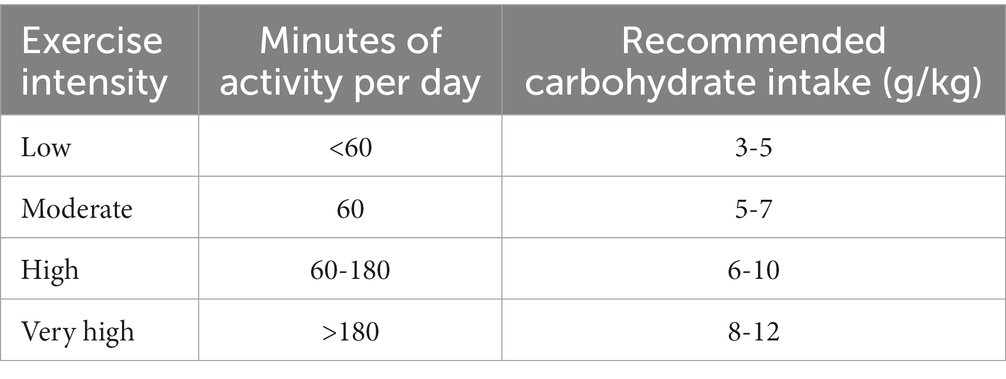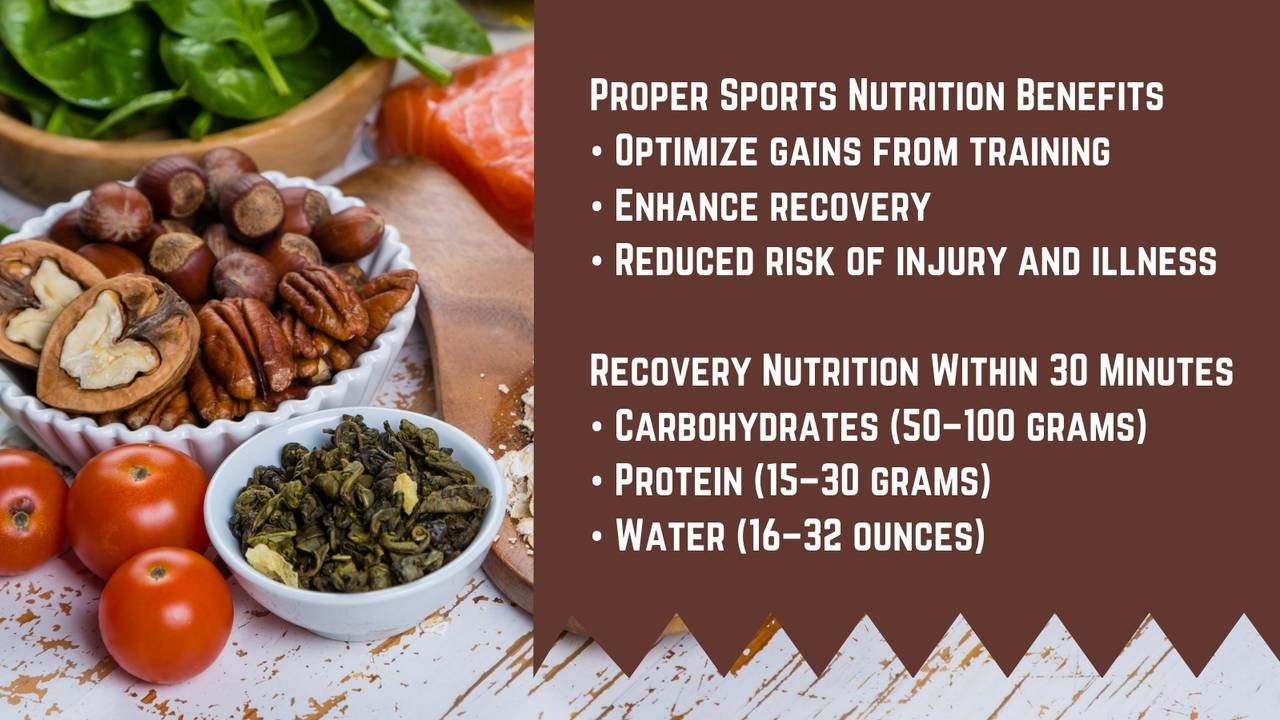Unknown Facts About Sports Nutrition
Unknown Facts About Sports Nutrition
Blog Article
An Unbiased View of Sports Nutrition
Table of ContentsOur Sports Nutrition StatementsSome Ideas on Sports Nutrition You Should KnowThe Ultimate Guide To Sports NutritionWhat Does Sports Nutrition Mean?
Hydration status is a vital location of sports nourishment that can make a difference in efficiency. As you exercise, you shed liquids and electrolytes in the form of sweat, your body's technique of cooling itself down. When engaging in continual high intensity workout, you need to restore fluids and electrolytes to stop moderate to potentially extreme dehydration.Every pound (0.45 kg) shed amounts to 16 oz (0.5 L) of fluid loss. You need to take in the equal amount of liquid to rehydrate prior to the following training session. It's also crucial to renew electrolytes during and after prolonged extreme exercise to prevent dehydration.
That stated, thinking about that athletes often have greater dietary demands than the general population, supplementation can be used to load in any type of gaps in the diet. Some individuals select to add protein powder to their oats to enhance their healthy protein content a little bit. Carb supplements may help endure your power levels, specifically if you engage in endurance sporting activities lasting longer than 1 hour.
They are available in gel or powder kind. Gels don't need to be mixed with water. Lots of long-distance endurance athletes will intend to consume 1 carbohydrate power gel including 25 g of carbohydrates every 3045 minutes throughout an exercise session longer than 1 hour. Sports Nutrition. Sports beverages also commonly include adequate carbohydrates to preserve energy levels, yet some athletes like gels to prevent too much fluid consumption throughout training or occasions, as this may lead to digestion distress.
Sports Nutrition Fundamentals Explained
In your body, beta-alanine serves as a building block for carnosine, a compound responsible for assisting to reduce the acidic environment within working muscle mass throughout high intensity exercise. This can assist athletes such as brief- to medium-distance joggers and swimmers.
Below are three of the leading sports nourishment misconceptions and what the realities truly claim. While healthy protein consumption is a vital consider gaining muscle, merely supplementing with protein will not cause any kind of significant muscular tissue gains. To advertise notable changes in muscle size, you need to frequently perform resistance training for an extended period of time while ensuring your diet gets on point.
An additional common misconception in sports nourishment is that eating near to bedtime will certainly trigger added fat gain. This is based on the presumption that since you're relaxing, your body is burning fewer calories, so any type of food you eat will certainly be kept as fat. While it holds true that your body burns less calories at rest, this does not suggest the food will instantly be saved as fat.
Sporting activity nourishment is the branch of and focused on people that practice extreme or endurance sports. Depending on the final goals of the sport and the training, will certainly stress various foods and diets. is required since the nutritional requirements of a professional athlete are different from those called for by a regular individual.
The smart Trick of Sports Nutrition That Nobody is Talking About

is one of the factors that affect exactly how well an athlete carries out, along with their hereditary makeup and the training they do. The foods consisted of in serve three basic goals: Giving power Providing issue for reinforcing and fixing tissues Preserving and controling the metabolic process There is no single for professional athletes; the depends upon the specific needs of each sport and the body type of the professional athlete.
Mix it up Eat a varied and healthy diet that provides the correct amount of power and vital nutrients. Fuel right Pick a range of food, consisting of foods which contain carbohydrates, based upon the amount of workout you are doing and see this here vary your consumption appropriately. this contact form Make every effort for five Consume at least 5 parts of fruit and veggies a day; fresh, icy, dried out and canned all count.
Healthy protein should preferably be evenly dispersed every three to 4 hours across the day. Researches show that the enhancement of 15-25g of protein to a post-workout dish or snack can boost glycogen storage, lower muscle mass pain and promote muscular tissue repair work. This can be at any time in the 24 hours after your exercise, although you may see decreased results the longer you leave it.
Sports Nutrition Fundamentals Explained

toughness professional athletes might pick to take creatine). Professional athletes thinking about making use of a supplement should seek advice from a certified sporting activities dietitian to guarantee they make use of the supplements securely and properly. Training volume and intensity can vary from daily and week-to-week, along with your competitors schedule. Consume and sustain your meals according to just how hard or simple it is.

Report this page